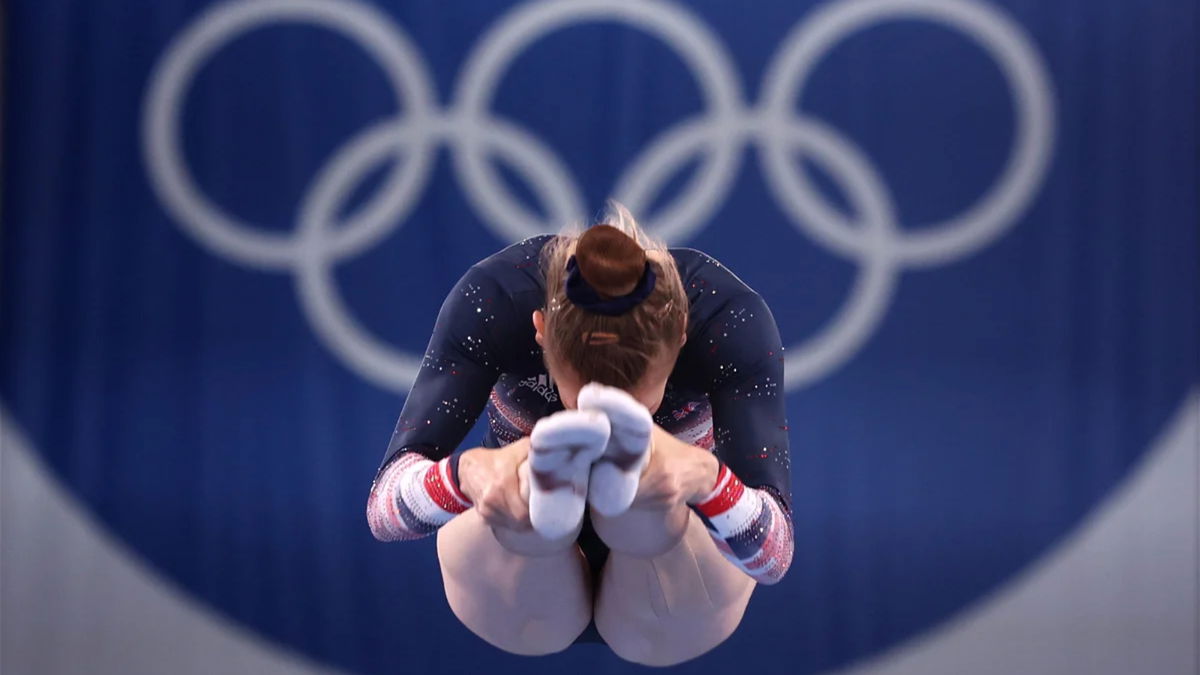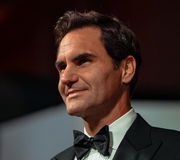

The sport of gymnastics is an amalgamation of sheer talent and the incredible physical and mental strength gymnasts possess. The criteria it takes to be a gymnast include body composition, strength, endurance, mental focus, and, most importantly, age. Although gymnasts like Simone Biles, Oksana Chusovitina, Kim Bui, and many others have defied the timeline and continued to push boundaries in the sport, gymnasts typically retire from competitive gymnastics in their late teens or early 20s.
Watch What’s Trending Now!
This pattern is attributed to the high risk of injuries, mental challenges, and the demanding nature of the sport. So recently, when a bold decision to delay gymnasts’ transition to senior status arose as speculation, the impact of the move stirred the community. Let’s take a look at the impact the decision could have on athletes’ bodies and career choices and discuss whether the move would be fair.
ADVERTISEMENT
A rumored bold move by the Gymnastics Federation
In a post on X by ITANASTICS, a post featuring women from the Italian gymnastics national team took the internet by storm. The post read, “WTF?! Based on the Italian National Team, in 2025 there will a lot of changes in the CoP. The gymnasts will turn Senior at 18 years old and not at 16 years old.” The age requirements in gymnastics have evolved over time. Before 1981, the minimum age to compete in senior events was 14, but it was later raised to 15 in 1981 and further increased to 16 in 1997.
Rumors out of the Italian program that the senior age of WAG gymnasts is to be raised to 18 in the next code of points. Hasn't been mentioned by people who have seen the draft 2025-28 code but it seems inevitable.
The IOC has been pressing for change. (FIG EC May 2022) https://t.co/wbQzo48YT5 pic.twitter.com/Blx6dvQdmv
— Katherine Keirns (@kmkeirns) January 11, 2024
However, according to FIG. EC May 2022, the International Olympic Committee (IOC) has been pressing for changes, addressing minimum age limits in sports. The rumor about potentially raising the senior age for women’s artistic gymnastics (WAG) to 18 in the next code of points set off a series of discussions as many argued the impact it could have on the physical, mental, and emotional well-being of young athletes.
ADVERTISEMENT
The impact of the decision
Highlighting the impact and weighing in on the discussion, one gymnastics enthusiast stated that if the reason behind the decision was due to burnout, “they could also, you know… stop making them compete seventy thousand times a year… and also stop making them compete so much difficulty so early in their career…”
ADVERTISEMENT
Is this to avoid burnout?? Because they could also, you know… stop making them compete seventy thousand times a year… and also stop making them compete so much difficulty so early in their career… https://t.co/VeIc8yGya0
— kojo (@deltchevpiked) January 11, 2024
One person even highlighted, “unpopular opinion but I hate this. Better emphasis needs to be placed on pacing for sure (on average gymnasts are much older now so this has been working), but no matter how well paced some people are, their bodies just can’t handle elite past 18 (recent example being Morgan)”
Top Stories
Greg Biffle’s $4M Worth Prized Possession Still Without a Buyer Leaves NASCAR Fans Heartbroken

LIV Golf Braces for Another Possible Exit in Wake of Brooks Koepka Departure

Sean Payton Announces Retirement Plans as Broncos HC Demands Improvement From Bo Nix & Co. Before Playoffs

Biff Poggi All But Confirms Bryce Underwood’s Michigan Future After Announcing His Own Departure

Roger Federer Draws Criticism from Swiss Government Chief for Tourism Boom in Country

Amanda Balionis Confirms New Relationship Ending Months of Rumors

unpopular opinion but i hate this. better emphasis needs to be placed on pacing for sure (on average gymnasts are much older now so this has been working), but no matter how well paced some people are, their bodies just can't handle elite past 18 (recent example being morgan) https://t.co/fnalvmtqz6
— romania hoe (@youwannacranson) January 11, 2024
ADVERTISEMENT
Looking at the physical toll the decision can take, this could affect balancing physical health and aspirations as it could be a stress on the body, especially on joints, bones, and muscles, leading to wear and tear that can compromise long-term physical health. It could also set the stage for a prolonged period of physical stress that may contribute to burnout.

Imago
210725 — TOKYO, July 25, 2021 — Oksana Chusovitina of Uzbekistan performs on the balance beam during the women s artistic gymnastics qualification at the Tokyo 2020 Olympic Games, Olympische Spiele, Olympia, OS in Tokyo, Japan, July 25, 2021. TOKYO2020JAPAN-TOKYO-OLY-ARTISTIC GYMNASTICS-WOMEN S QUALIFICATION ChengxMin PUBLICATIONxNOTxINxCHN
Apart from this, the sport’s competitive zenith typically occurs in the late teens to early twenties, after which maintaining peak performance becomes progressively challenging. The intense competitive environment can lead to stress and anxiety, compromising their mental well-being over prolonged competitive careers.
ADVERTISEMENT
Read more: As Gabby Douglas Skips NTC, Simone Biles Admits She Is the Reason for Legend’s Gymnastics Success
Watch this story: Global Giant With Over $59,300,000,000 Revenue Joins Hands With Past Olympians in a Wild-Entry to Paris Olympics
ADVERTISEMENT
ADVERTISEMENT
ADVERTISEMENT

